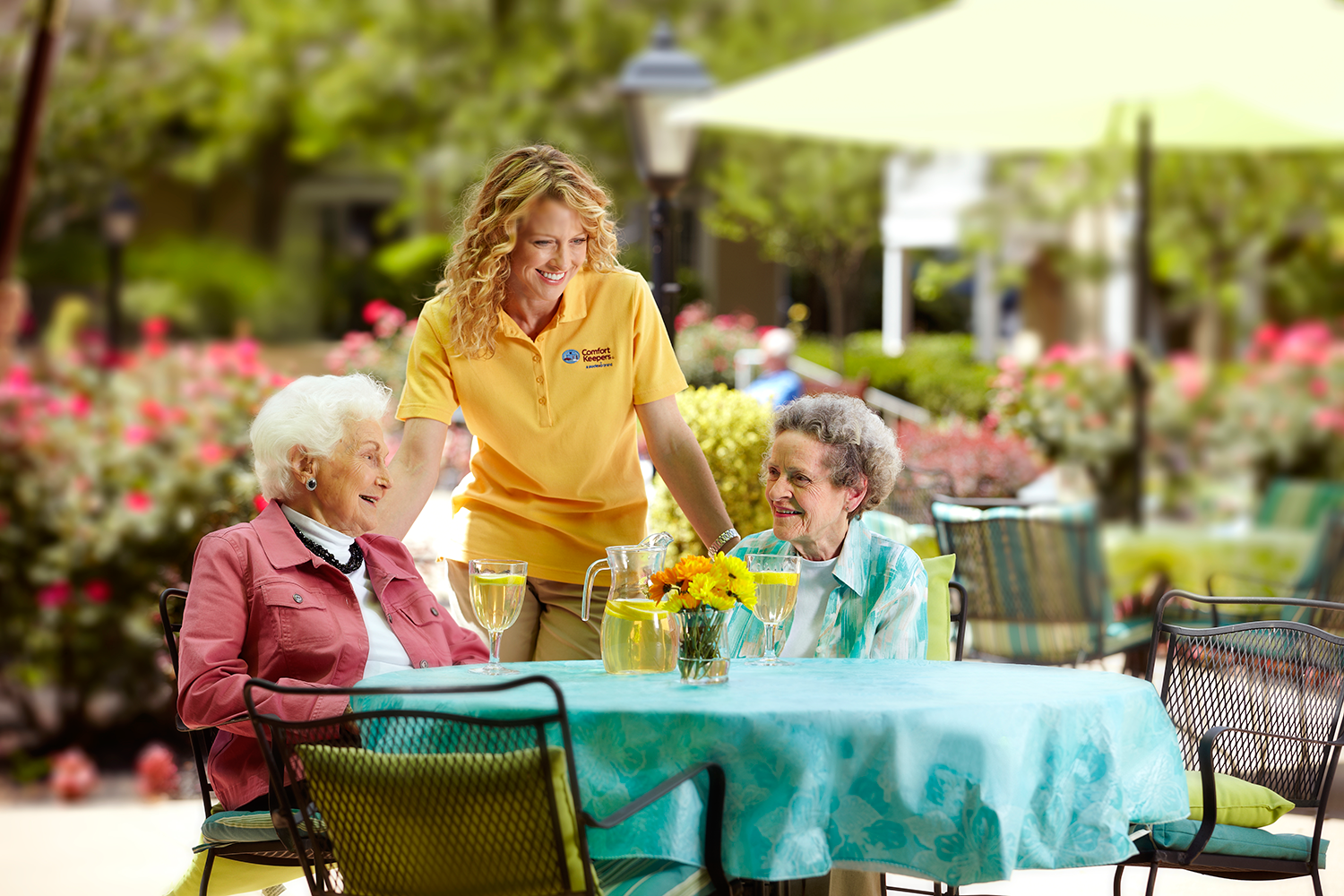Supporting Family Caregivers
Believe Us, You Are Not Alone
Despite its rewards, serving as a senior’s primary caregiver can be demanding and stressful. Many others are in the same situation. In a 2007 Ipsos-Reid survey, one in three Canadians age 45 to 60 reported being caregivers to aging family members. Family and friends provide an estimated 80 percent of senior care.
There are many resources available to you. In the interest of your overall health — and that of your family and the person you are caring for — don’t approach caregiving responsibilities as if you are alone.
Respite Care: Relief for the Family
No matter how much you love the person you are caring for, you need regular breaks from caregiving. Nonstop caregiving will zap your energy and take a toll on your physical, mental and emotional health.
If you will not do it for yourself, please consider that respite care also benefits the person you are caring for. After a break, you will return with your battery recharged. You will be refreshed and more effective.
A respite could be just a day away with friends, an afternoon of personal errands, or an exercise break. Or it could be a vacation, away from it all.
You can find relief from numerous sources:
- Relatives and friends, who can step in as needed
- Professional in-home senior care providers, such as Comfort Keepers®
- Churches and other volunteer organizations
- Adult day care centres
- Organizations such as the Alzheimer Society of Canada
- Often, family and friends want to help. They just do not know how. As a caregiver, you can make it easy on them – and yourself – by always having a list of assignments ready, like preparing meals, picking up a few things at the grocery, going on a walk with the senior, or staying with him or her from time-to-time.
Before planning respite care, be sure to talk with your loved one about it, explaining the up side for everyone. To help your loved one accept the idea, be sure to involve him or her in making the arrangements.
Respite care helps the primary caregiver keep her life in balance and ends up benefiting the caregiver, the loved one she’s caring for and her family.
How to Care for Yourself and Prevent Caregiver Burnout
Besides scheduling regular respites, Comfort Keepers recommends that you practice the following to relieve stress and maintain optimal health:
- Exercise—make it part of your schedule for added energy.
- Get plenty of sleep—at least seven hours.
- Eat regular, well-balanced meals.
- Maintain contact with friends for essential emotional support.
- Stay involved in hobbies and social activities.
- Join a support group, which can encourage you and back you up with experienced advice.
- Seek support through your faith and faith community, which could be a good source of volunteer caregiving help.
- Visit your doctor regularly and share concerns you have about the effects of caregiving on your physical, mental and emotional health.
- Take time to pamper yourself—for instance, a warm bath, manicure or massage.
- Laugh. Find humor in everyday situations and take time out with a humorous book or movie.
- Keep a journal to record your thoughts and feelings. It provides an essential release for your emotions.
- Arrange for a family member, friend or volunteer from a church or senior centre to call you on a regular basis to see if you need any help.
- Confide in others. Do not bottle up your emotions.
- Know your limits. You know what other responsibilities you have, so be realistic about how much time you can give to caregiving. Do not be afraid to delegate.
- Learn as much as you can about caregiving and your loved one’s needs or illness. The more you know, the more effective and more satisfied you can be.
How a Support Group Can Help You
Community Support Groups…
- Get you out of the house on a regular basis and prevent isolation.
- Put you face-to-face with other caregivers who know what you are dealing with. From their experience, they can offer you relevant advice.
- Offer you information about local resources available to help you.
- Open the opportunity for new friendships.
Internet Support Groups…
- Enable you to get support and advice as needed and when convenient for you.
- Provides support without having to leave the house, which could be particularly helpful for those with limited transportation or mobility.
- Provide the experience and knowledge of a broader pool of participants, which could be especially helpful if your loved one has a rare medical condition and special care needs.
Caregiver Support and Advice on the Web
You will find a wealth of online resources to provide caregiving support and advice. Here are a few examples:
- Family Caregivers Network Site
- Strength for Caring, Johnson and Johnson’s resource centre for caregivers.
- Lotsa Helping Hands, a site that allows family and friends to coordinate caregiving tasks online. The site is sponsored by the National Alliance for Caregiving.
- Canadian Caregiver Coalition
- Online Guide to Caregiving, a comprehensive collection of caregiving articles and tools from AARP The Magazine.
- Helpguide.org
Individualized Home Care Options
Long-Term Home Care, 24 Hour Home Care & Short Term Care Options Customized for You








